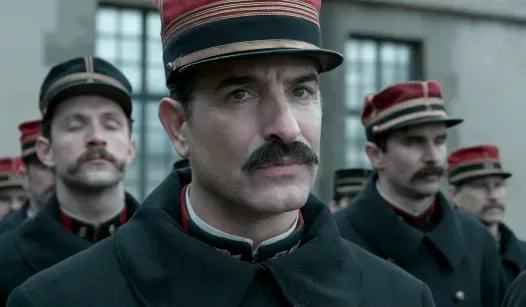Roman Polanski’s film “An Officer and a Spy” serves as a powerful commentary on the historical injustices of the Dreyfus Affair, drawing striking parallels to contemporary issues of lawfare and the manipulation of justice. This cinematic retelling not only revisits a pivotal moment in French history but also prompts viewers to reflect on the ongoing struggles against wrongful accusations and the fight for truth in the legal system.
The Dreyfus Affair, which unfolded in the late 19th and early 20th centuries, centered around the wrongful conviction of Captain Alfred Dreyfus, a Jewish officer in the French Army, who was falsely accused of treason. The case exposed deep-seated anti-Semitism in French society and raised profound questions about the integrity of the military and the legal system. Polanski’s adaptation captures the essence of this scandal, illustrating how the forces of power and prejudice can conspire to undermine justice.
In “An Officer and a Spy,” Polanski meticulously reconstructs the events leading to Dreyfus’s conviction and the subsequent efforts of Georges Picquart, an officer who becomes disillusioned with the military’s handling of the case. Picquart’s relentless pursuit of the truth places him at odds with his superiors, showcasing the personal and professional risks associated with standing up for justice. The film emphasizes the moral dilemmas faced by individuals caught in a system that prioritizes loyalty over truth.
The themes explored in Polanski’s film resonate deeply with current events, where accusations can often be weaponized for political gain. The rise of lawfare—using legal systems and principles against opponents—has become a pressing issue in today’s political landscape. Just as Dreyfus was targeted due to his identity and the prevailing prejudices of the time, contemporary figures may find themselves ensnared in legal battles that reflect broader societal divisions.
Polanski’s portrayal of the Dreyfus Affair serves as a cautionary tale about the fragility of justice and the importance of vigilance in safeguarding it. The film invites audiences to consider the implications of a legal system that can be manipulated by those in power, raising questions about accountability and the pursuit of truth. In an era where misinformation and political polarization are rampant, “An Officer and a Spy” serves as a reminder of the need for integrity and transparency within our institutions.
As viewers engage with the film, they are encouraged to reflect on the lessons of the past and their relevance to today’s political climate. The Dreyfus Affair’s legacy continues to resonate, highlighting the ongoing struggle against injustice and the necessity of standing firm in the face of adversity. Polanski’s work not only commemorates a historical figure but also serves as a rallying cry for those who seek to challenge the status quo and advocate for a more just society.
In conclusion, “An Officer and a Spy” is more than just a historical drama; it is a poignant exploration of the complexities of justice and the human spirit’s resilience. By drawing parallels between the Dreyfus Affair and contemporary issues of lawfare, Polanski’s film invites us to engage in a broader conversation about the nature of truth, accountability, and the fight against prejudice. As we navigate the challenges of our time, this cinematic reflection serves as a powerful reminder of the enduring importance of justice and the need to uphold it in the face of adversity.
